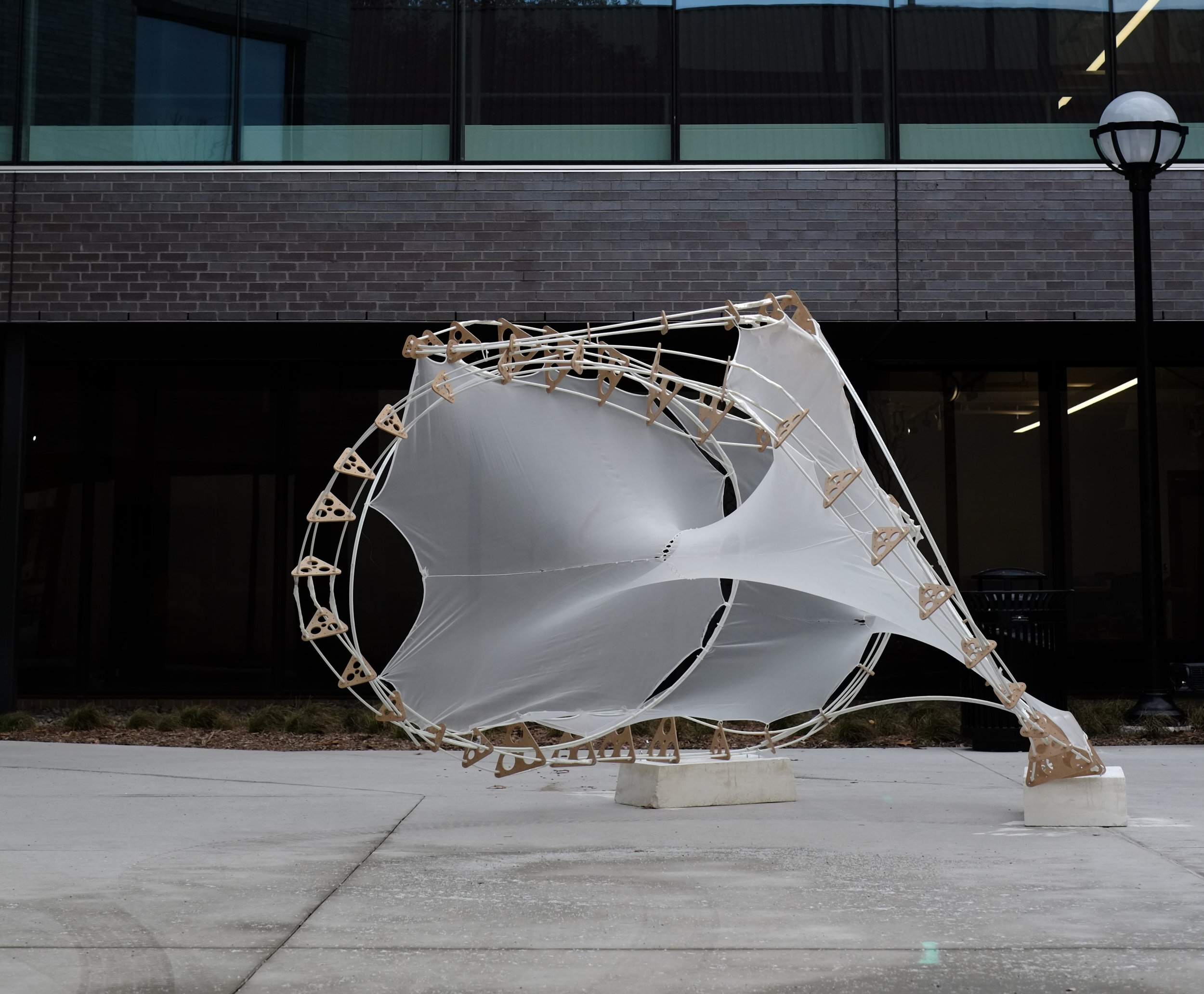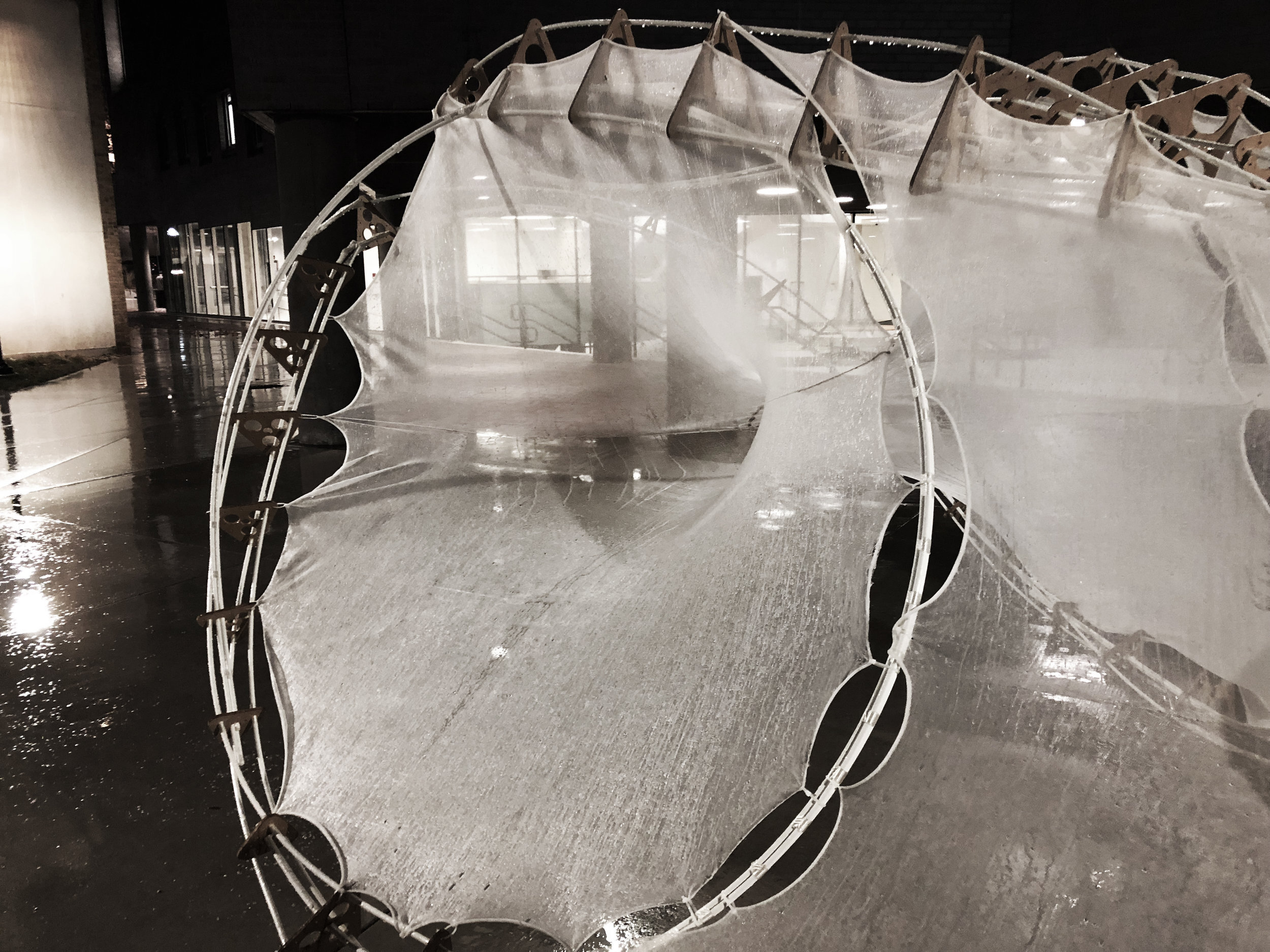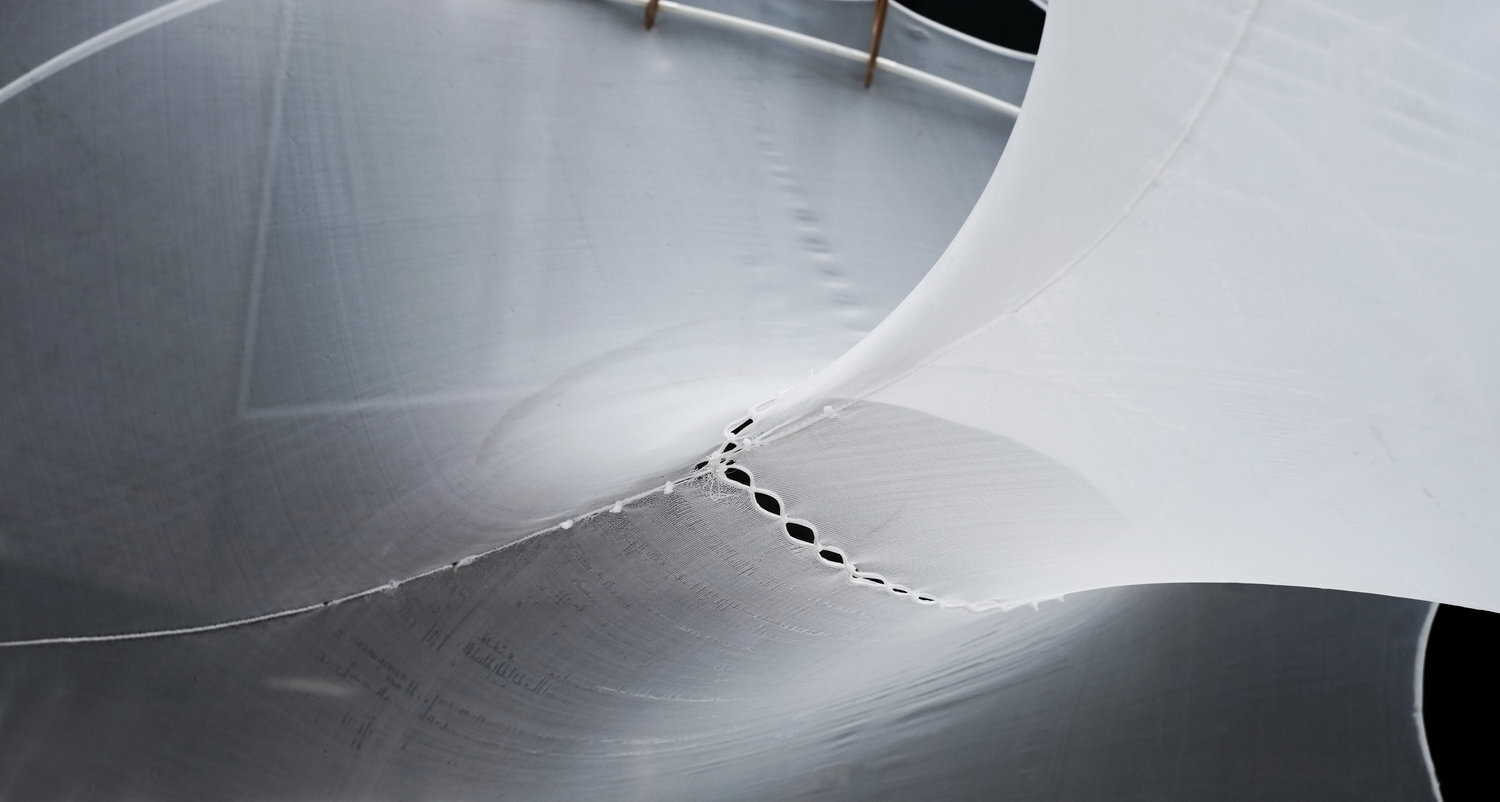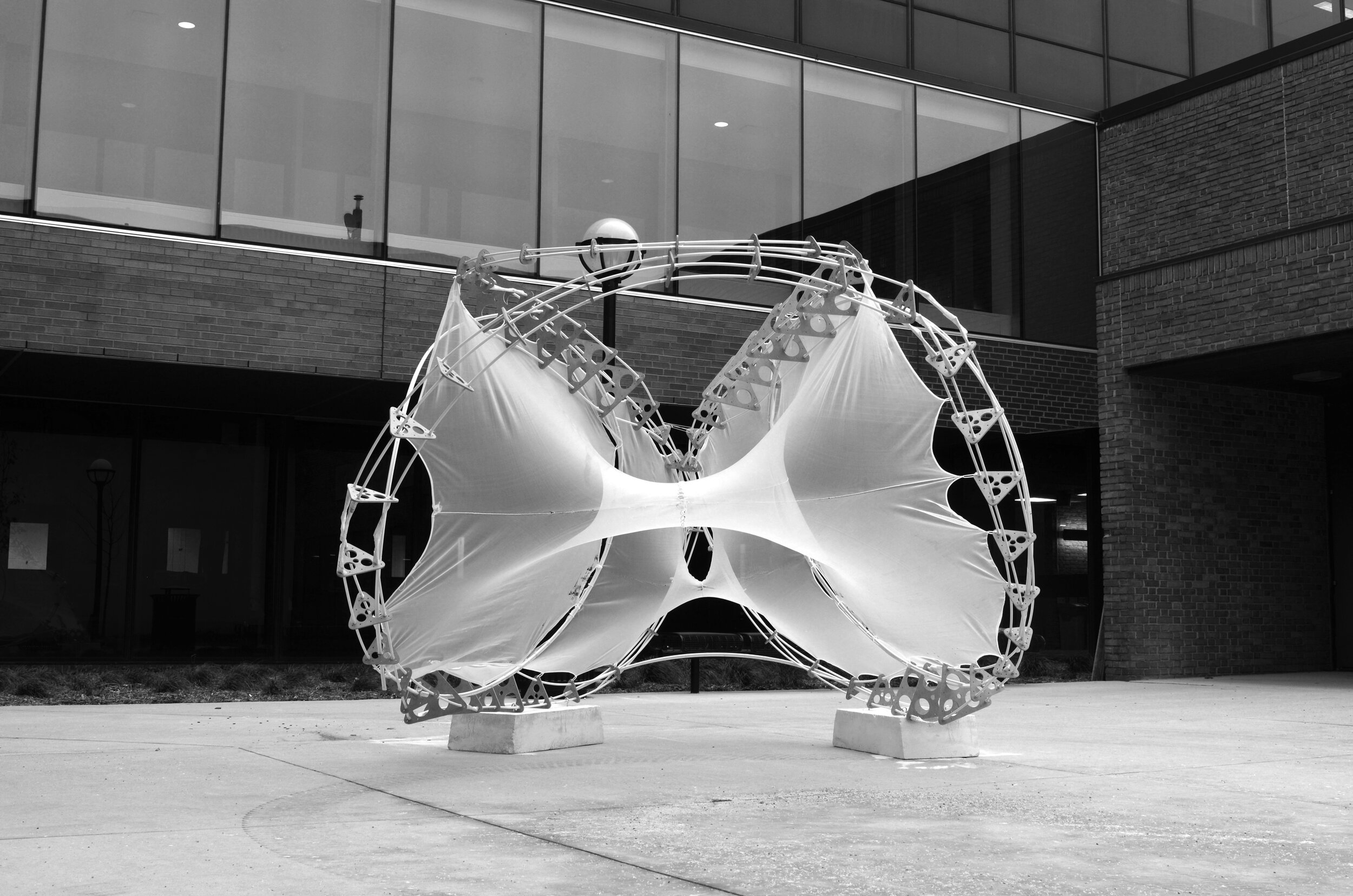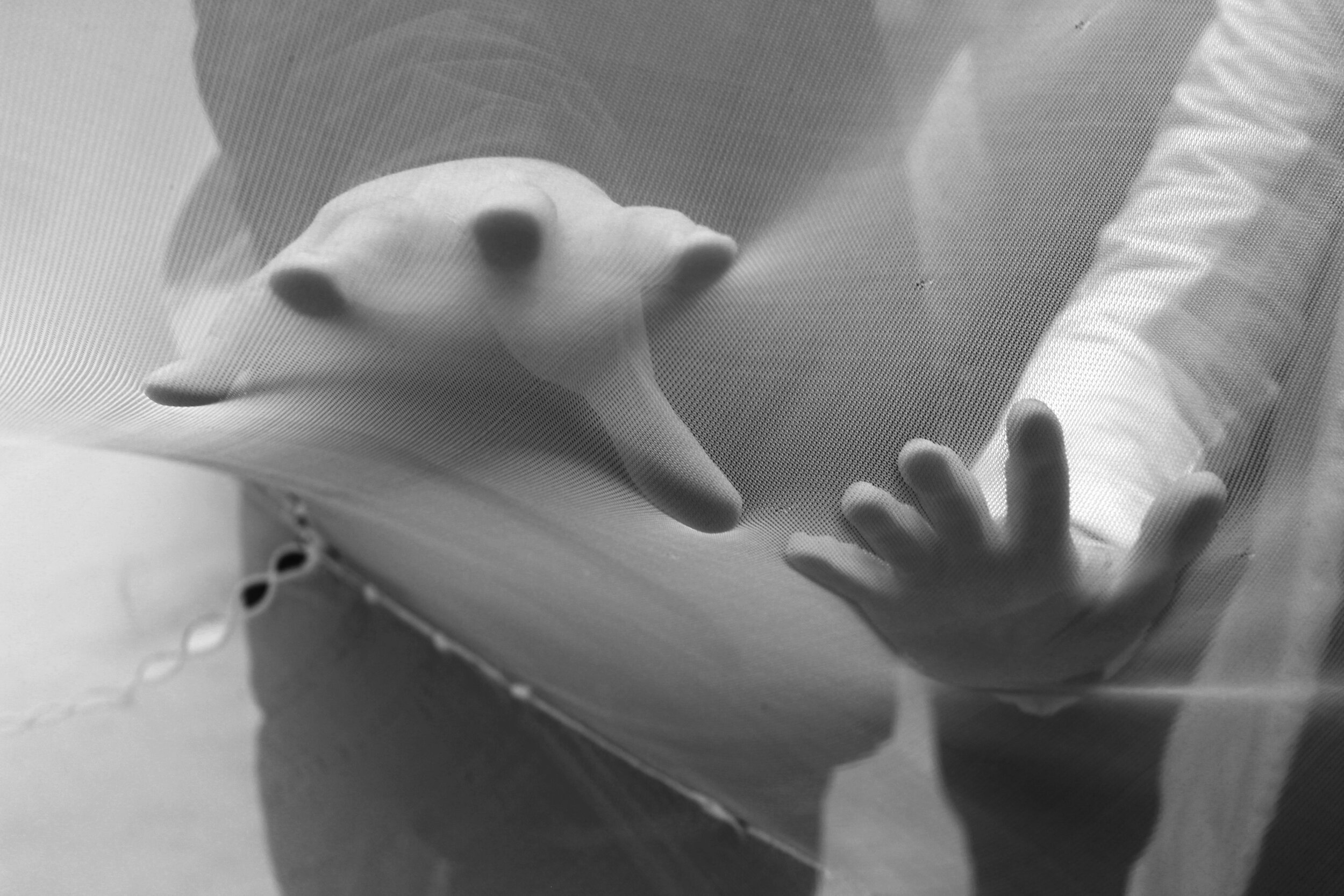
Textile Hybrid
The course investigated modes of computational design which places materiality as an apriori agent in the generation of complex structural morphologies. Architectural form subsequently emerged as a repercussion of material behavior. In order to explore the relationships of material and form, we engaged methods of form-finding through physical prototyping and computational simulation. A critical aspect was to understand relationships between methods and experiments, rather than from a single linear process or design medium through the development of a textile hybrid prototype.
The course involved three primary teams with pursuits: 1. Building methods to automate the fabrication of CNC knitted textiles, 2. the study of hybridized textile material systems, ones which activate form through the inclusion of a secondary structural system, and 3. study of the relationship between the textile structures and the myriad factors of the environment. The work was developed in a highly rigorous fashion, focusing on small incremental steps developing computational tools and testing material properties, evolving to the development of large-scale prototype.
Team: Shan Chun Wen, Maryam Aljomairi, Yi-Liang Ko, Lucas, Amin, Joon, Abhishek, Mike, Ester, Hana, Izzy, Maria, Misri Patel.
Instructor: Sean Ahlquist
Technology: CNC Knitting Machine

